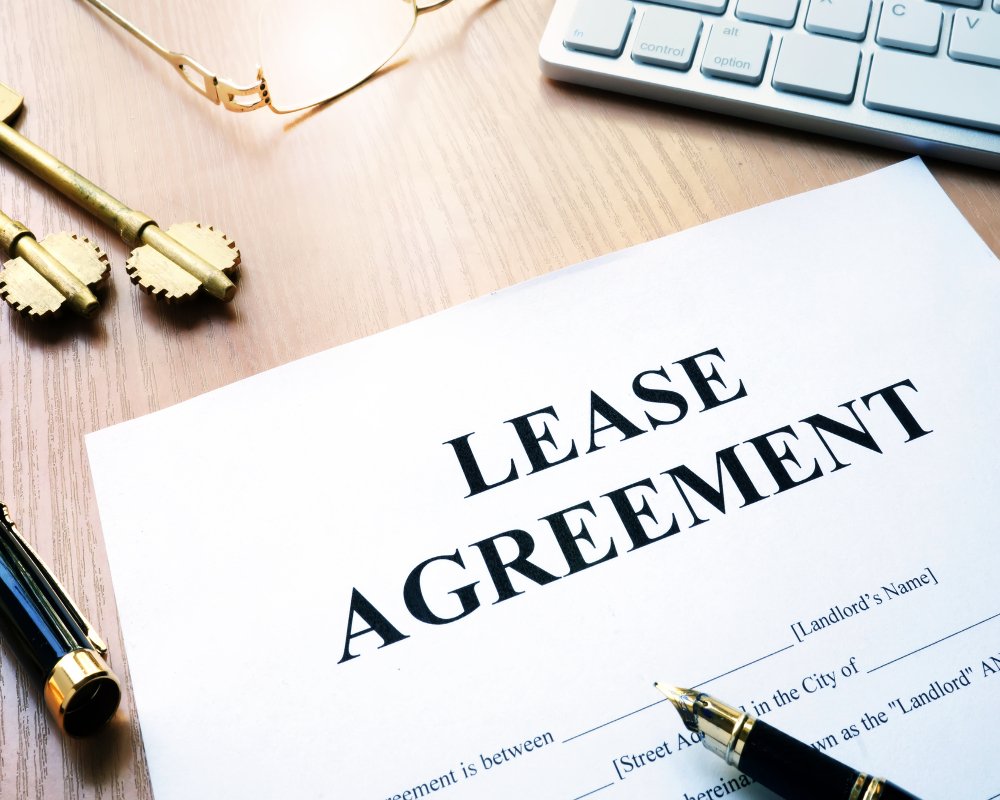Introduction
A lease agreement for industrial sites is a legally binding contract between a lessor (the property owner) and a lessee (the industrial occupant or company) that outlines the terms and conditions under which the lessee may use the property for industrial purposes. Unlike outright land purchases, lease agreements offer flexibility, reduced upfront costs, and faster operational setup for companies seeking land for factories, warehouses, manufacturing units, logistics hubs, or similar activities.
In many countries, especially where land availability is limited or government-controlled, industrial land is often made available through long-term leases rather than freehold sales. These agreements must be carefully drafted to address legal, operational, and financial considerations, and to ensure regulatory compliance with zoning, environmental, and industrial development norms.
Key Features and Structure
Industrial lease agreements typically cover longer durations than residential or commercial leases—often ranging from 10 to 99 years—to support the capital-intensive nature of industrial development. The lease provides the lessee with possession and usage rights over the land or built-up space, while the legal ownership remains with the lessor.
A comprehensive lease agreement includes detailed clauses on rent and escalation terms, lease tenure, renewal conditions, maintenance obligations, and the permitted use of the premises. It also defines the lessee’s rights to develop, construct, install machinery, and modify the property as needed for industrial operations, subject to necessary permissions.
Legal and Regulatory Compliance
For industrial land, lease agreements must align with zoning regulations and development authority guidelines. These documents often require approval or registration with local bodies such as industrial development corporations, municipal authorities, or SEZ management offices.
The lessee must ensure that the intended activities are permissible on the site and comply with environmental, safety, and labor laws. If the land is allotted by a government body, the lease deed may include specific conditions like mandatory operational timelines, usage restrictions, or penalties for non-compliance.
Depending on local laws, lease agreements exceeding a certain period—often 12 months—must be registered with the Sub-Registrar Office to be legally enforceable. Registration involves payment of stamp duty and registration fees, which are usually calculated as a percentage of the lease value or duration.
Financial and Operational Terms
The lease agreement outlines the monthly or annual rent, security deposit, and tax responsibilities such as property tax, utility charges, and municipal levies. Many leases also include a rent escalation clause, which provides for periodic increases in rent (e.g., 5% every year or 15% every three years) to account for inflation and market changes.
The lease may also specify who is responsible for maintenance, repairs, insurance, and property upkeep. In triple-net leases, common in industrial real estate, the lessee bears the costs of taxes, maintenance, and insurance, giving the lessor a passive income stream.
Transferability and Subletting
Industrial leases often include provisions regarding assignment or subletting. In most cases, the lessee can only transfer the lease rights or sublease the premises to another party with the prior written consent of the lessor. This clause helps the owner maintain control over how the land is used and prevents unauthorized activities or overcrowding.
In government or industrial authority-owned lands, any transfer of leasehold rights typically requires approval from the relevant body and may involve payment of a transfer fee or fresh registration.
Termination and Reversion
Termination clauses in industrial lease agreements define the circumstances under which the lease may be canceled—such as breach of terms, failure to pay rent, or illegal use of the property. Upon termination, the lessee is required to vacate the premises, and in some cases, restore the land to its original condition, especially if temporary structures were erected.
In long-term leases, reversion clauses state that any permanent construction or improvement made on the land will become the property of the lessor at the end of the lease term, unless otherwise agreed. This is a common feature in government-allotted lands where lessees are allowed to build industrial units, but ownership of land (and sometimes the structure) ultimately reverts to the state.
Conclusion
Lease agreements for industrial sites are vital legal instruments that grant usage rights while preserving ownership and regulatory control. They provide industrial enterprises with access to strategically located land or facilities, reduce capital expenditure, and allow operational flexibility. A well-drafted lease agreement ensures clarity, minimizes disputes, and aligns both parties on responsibilities, development rights, and legal obligations. Whether negotiated in the private market or through public industrial land allotment schemes, these agreements must be approached with due diligence, legal review, and a long-term strategic perspective.
Hashtags
#LeaseAgreements #IndustrialRealEstate #CommercialLeasing #PropertyManagement #IndustrialSites #LeaseTerms #RealEstateLaw #TenantRights #LandlordResponsibilities #BusinessLeases #CommercialProperty #LeaseNegotiation #RealEstateInvesting #IndustrialProperty #LeaseExplained #BusinessGrowth #RealEstateTips #CommercialRealEstate #LeaseUnderstanding #PropertyLeasing


